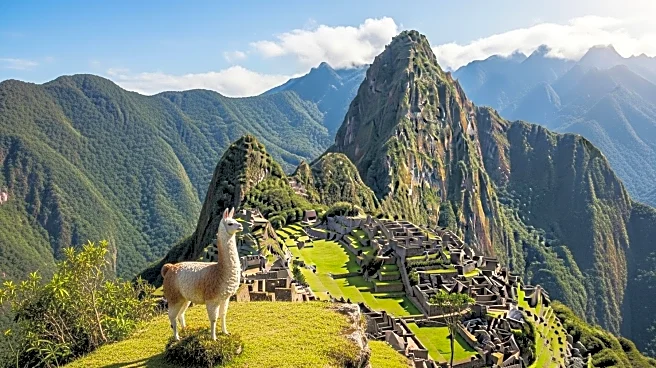What's Happening?
Machu Picchu, the renowned 15th-century Inca citadel, is at risk of losing its status as one of the New 7 Wonders of the World. This potential downgrade is attributed to overtourism and insufficient conservation policies. The site was awarded its title in 2007 after receiving over 100 million votes in a global competition. The New7Wonders project, which organized the vote, has indicated that the future of Machu Picchu's status depends on the actions of Peru's key decision-makers. The site has been facing challenges related to the preservation of its historical and cultural integrity amidst increasing tourist numbers.
Why It's Important?
The potential loss of Machu Picchu's status as a Wonder of the World could have significant implications for Peru's tourism industry, which heavily relies on the site's global recognition to attract visitors. This situation underscores the broader issue of balancing tourism with conservation efforts, a challenge faced by many heritage sites worldwide. If Machu Picchu loses its status, it may lead to decreased tourist interest, impacting local economies and businesses that depend on tourism. Additionally, it highlights the need for sustainable tourism practices and effective conservation policies to protect cultural heritage sites.
What's Next?
Peru's decision-makers are expected to address the conservation concerns raised by the New7Wonders project. This may involve implementing stricter regulations on tourist access and investing in preservation efforts to maintain the site's integrity. The outcome of these actions will likely influence Machu Picchu's status and its future as a major tourist destination. Stakeholders, including local businesses and conservation groups, may advocate for policies that balance tourism with the preservation of the site's cultural and historical significance.
Beyond the Headlines
The situation at Machu Picchu reflects a broader global challenge of managing cultural heritage sites in the face of increasing tourism. It raises ethical questions about the responsibility of governments and international organizations in preserving historical sites while accommodating economic interests. Long-term, this could lead to shifts in how countries approach tourism and conservation, potentially influencing international standards and practices.











